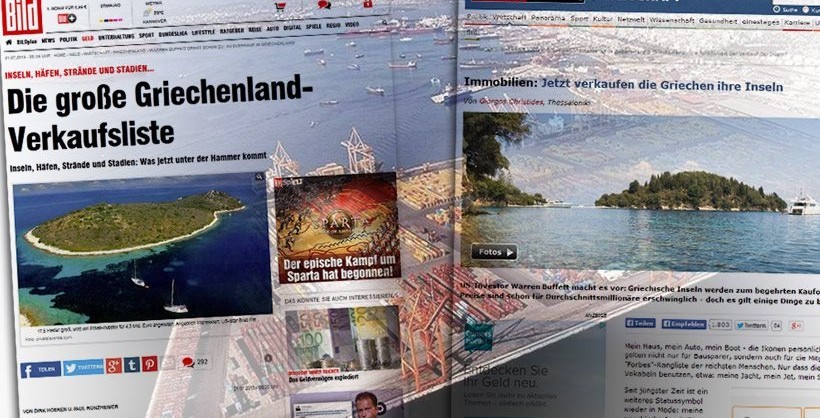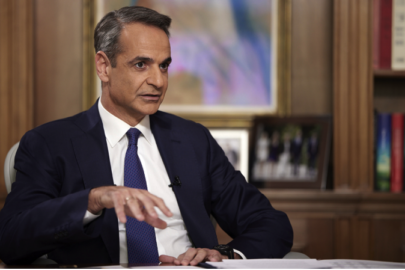German media is pointing to a fire-sale of Greek assets so that the country can generate cash to start paying off its enormous and possibly unmanageable debt, instead on relying on the usual modern Greek “formula” of taxing, taxing and then taxing wage-earners and pensioners some more.
US investor extraordinaire Warren Buffet is just the latest international celebrity interested in buying a Greek isle.
Der Spiegel’s article states that the Greek state is willing to sell (mostly small and uninhabited) islets, and refers to the likes of actor Johnny Depp, who bought an isle only known as “Stroggino” for 4.2 mln euros, as well as Italian Alessandro Proto, who purchased Aghios Thomas (St. Thomas), ostensibly with Buffett, just off the major Saronic island of Aegina for 15 mln euros. Other VIPs are expected to express an interest over the coming months.
Nevertheless,according to a www.omaha.com post on Tuesday, Buffett’s office in the Nebraska city denied that the “Oracle of Omaha” bought the isle or any other island. “… reports from Greece that Buffett and Italian real estate agent Alessandro Proto together purchased the island of St. Thomas, southwest of Athens, are incorrect,” the website stated.
The German media reports claim that more than 20 Greek islets were put up for sale last year, and the number will increase in 2015. Of course, actual “sales” are the real “litmus test” of the initiative.
German tabloid Bild points to 10 assets that could be sold-off, including (unused) sports facilities and the leasing of beaches, so that today’s Greek politicians can pay for the loans that they and their predecessors took out over the past four decades in the name of the Greek state.
The ancient theater of Epidaurus (Epidavros) and the jet-setters’ island playground of Hydra are among the “jewels” that the tabloid cited in its mostly baseless and sensationalist article, ignoring the fact that the former is an internationally recognized archaeological and cultural heritage site and that arid Hydra is a populated island with thousands of … private property deeds, residences, businesses etc.
Tiny, uninhabited islets with no archaeological or strategic significance but under state ownership can, of course, be sold or even leased for a lengthy period of time — like 100 years, as is normal in the UK, for instance. But the purchase of land isn’t linked with the owner’s nationality, meaning that that it doesn’t change… sovereignty — i.e. a Greek citizen buying an islet in the Caribbean doesn’t mean that the land will become part of Greece. Private isles can also be sold or purchased, with the most famous instances including late shipping magnate Aristotle Onassis’ purchase of Skorpios (near Lefkada in the Ionian sea); his rival, Stavros Niarchos’, purchase of Spetsopoula (near Spetses) in the 1960s and even the purchase of Petalous islet by Pablo Picasso’s heirs in the southern Evoikos Gulf — between Evia and the Greek mainland.
Bild also claims two government jets for 10 mln euros, 2,500 buildings managed, or mismanaged, by the culture ministry, the Athens Olympic Stadium complex (OAKA), another 1980s-era indoor stadium in southern coastal Athens and land where a US base in Crete sits are also on the selling block. Bild estimates how 50 bln euros can be gathered by selling off more assets, although with the property it mentioned in the latest article, it will be difficult to even exceed the billion-euro-mark.
Tabloid stories on Greek “sell-offs” usual fail to consider that Greece lacks a national cadastre (land registry) and that most, if not all, state-run enterprises are loss-making. Financial journals (FT, WSJ, Economist) usually pin-point legitimate possibilities of privatizations.
What’s actually up for consideration is the long-term concession of the country’s two major ports (Piraeus and Thessaloniki), management of 14 regional airports that were up for privatization before the SYRIZA government took over the government’s reins, the power grid operator, the natgas network operator and even granting licenses for private power generation units or LNG facilities.



































